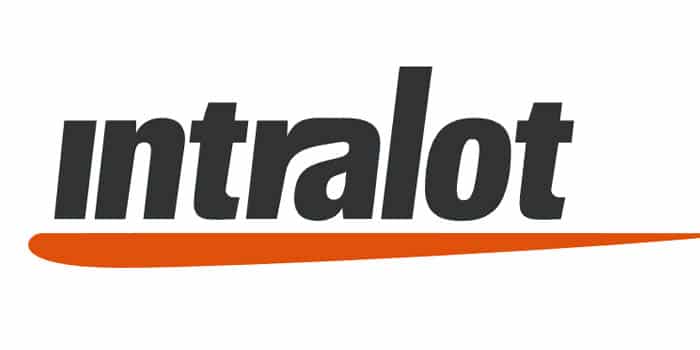- Casino
- By State
- Alabama
- Alaska
- Arizona
- Arkansas
- California
- Colorado
- Connecticut
- Delaware
- Georgia
- Florida
- Hawaii
- Idaho
- Illinois
- Indiana
- Iowa
- Kansas
- Kentucky
- Louisiana
- Maine
- Massachusetts
- Maryland
- Michigan
- Minnesota
- Mississippi
- Missouri
- Montana
- Nebraska
- Nevada
- New Hampshire
- New Jersey
- New Mexico
- New York
- North Carolina
- North Dakota
- Ohio
- Oklahoma
- Oregon
- Pennsylvania
- Rhode Island
- South Carolina
- South Dakota
- Tennessee
- Texas
- Utah
- Vermont
- Virginia
- Washington
- West Virginia
- Wisconsin
- Wyoming
- By State
- Slots
- Poker
- Sports
- Esports
Manpower Shortage Increases iGaming Salaries, iGB and Pentasia’s Survey Reports

The fourth edition of the annual iGB-Pentasia salary survey has been released, detailing the global pay within the iGaming sector and the various trends in the industry.
The survey pointed to five notable trends in the global gaming market. The most notable one is the global shortage of talent which, in turn, leads to seasoned workers being almost impossible to find. Because of this, some employers are ready to provide up to 25% salary raises to their workers. Furthermore, the likelihood of employers supporting hybrid and/or remote workers has dramatically increased.
Lastly, companies are bullish on establishing a workplace culture that keeps employees motivated and provides them with a sense of purpose.
Salaries Increase as the Industry Hungers for Manpower
Alastair Cleland, the managing director of Pentasia, spoke about the shortage of manpower. Cleland pointed out that the popularity of iGaming has led to a demand for manpower so high that it rivals the industry’s early days. With such high demand, salaries have also increased by 12% on average.
Cleland continued that investors are heavily focused on the iGaming sector. Since the investors don’t like waiting, that means being slow in hiring new staff may cost an operator a lot of money. This is why further salary increases seem inevitable.
Overall, according to statistics, 65% of the companies are forecasting workforce growth. As the thirst for talent only deepens, operators are becoming more likely to adopt a higher degree of flexibility, field home office workers, and overall accept candidates’ demands.
Cleland added that many companies are now seeking to hire “people-focused leaders” who create a thriving workplace community and improve worker retention. Additionally, companies have warmed up to the idea of training programs and graduate entry schemes.
“In today’s highly pressurized talent market, it’s arguably only these kinds of long-term strategies that will win in the end,” Cleland concluded.
How the Trends Have Affected Employers and Salaries
To illustrate how dire the need for iGaming industry workers is, the survey shows that more than 92% of the companies are actively recruiting. Out of this number, over 25% are searching for 25 or more different roles. Moreover, 67% of companies admit that the talent shortage is the hardest challenge they are currently facing.
Taking a look at how this shortage has influenced the salaries of the various workplace positions, we see an increase across the board. Compliance & legal workers, as well as salesmen & accountants, have had the highest salary increase, sitting at 26% more than in 2020. Interestingly, the salaries of both positions experienced a drop between 2019 and 2020, which is now followed by a sharp rise.
Analytics & data specialists and finance & operations positions have, in turn, enjoyed a 16% salary increase.
Close behind are tech & design workers, who are considered to be the most coveted and hardest to find specialists in the whole sector. Their pay has gone up by 12%. They are also one of the few positions that have had a consistent salary increase in the 2018-2021 period.
To conclude, customer services, marketing specialists, MD & C-suites, and product & project specialists have had a 9%, 8%, 7%, and 7% increase in their salaries, respectively.
Industry Specialists Speak in Detail
Various industry specialists have provided their observations to the survey.
Senior IT recruitment consultant Antony Watters explained that despite the technology being more accessible than ever, finding skilled employees continues to be hard. The sharp increase in demand has made acquiring talented tech workers even more arduous.
“Candidates with gaming experience – ideally furnished with a maths or computer science degree, or gaming experience – are snapped up,” Watters pointed out.
He added that flexibility is of the essence when recruiting such people, as tech workers rarely find office-based job offers appealing.
Principal consultant for legal and compliance operations Kerry Gillitt said that as companies seek to quickly incorporate three lines of defense model, AML and safer gambling expertise is highly sought after.
Gillitt said that good salaries and benefits are a great way to incentivize such workers.
She continued by talking about financial specialists who are highly prized and have seen a substantial increase in their salaries, especially when it comes to chief financial officers. Still, Gillitt pointed out that human resources positions have enjoyed the biggest salary increase among all the others because companies are beginning to realize the boons of strong leadership.
Pentasia’s head of Europe, Cara Kerr, turned attention to the hiring of customer service specialists, pointing out that language skills are crucial to such positions. Knowledge of Danish and Japanese in particular has proven to be a great advantage to landing a well-salaried job in the sector.
While experience is preferable, Kerr said that many employers would readily train workers if that would solve the employee shortage.
Senior recruitment consultant Gareth Mulley said that the competitive and oversaturated market has led to a high need for capable marketing workers, with data-oriented professionals being in great demand.
Just as with IT specialists, Mulley said that marketing workers tend to prefer remote jobs. As companies have increased their flexibility, the access to talent has improved.
Mulley ended up with a note of concern that one day AI may replace some of the jobs in this field.
Senior recruitment consultant Karl Harenburg spoke on sales and account management positions. He said hiring activity has recovered from the COVID-19 pandemic, but sales remain inconsistent. Sales specialists, therefore, remain sought after.
Harenburg explained that there had been a surplus of sales roles candidates, quite unlike other roles. Still, the competitive nature of the business means that hiring the best salespeople in the sector is just as costly as it is vital.
Harenburg also spoke about product and project roles.
“Innovation, differentiation, and diversification: product and project specialists deliver substantial commercial value. Little wonder, then, that experienced leaders now expect a premium for that service,” Harenburg said.
Salaries of such workers are already inflated, but Harenburg said that he expects them to rise even further.
Pentasia’s head of tech recruitment, Robert Gray, concluded the segment by speaking about tech specialists – the most difficult role to find.
“Tech is the frontline of the talent shortage,” Gray called it, “Every gaming employer is suffering from a shortage of tech talent, and many are suffering badly.”
Gray added that hiring a skilled tech worker is no longer just about a good salary. Tech specialists want to work in a healthy work ecosystem with a thriving team and access to last-gen technology.
Gray continued that tech roles have a standardized paycheck across the world, and therefore, it is incredibly difficult to get tech workers to do an office job on top of companies being unable to import a cheaper workforce from somewhere else.
The Supply of iGaming Talent Across the World
The survey listed several of the hotspots for iGaming talent and how they have been affected by the trends.
In Europe, the industry is experiencing a gradual decentralization. Hybrid and remote work is becoming more common, and newly regulated regions continue to emerge, increasing the global imprint of the European gambling market.
The United Kingdom and London, in particular, remain as a trusted hub where many of the giants in the industry have chosen to establish their headquarters.
Malta remains a promising location to many companies. However, a new problem arises as employees are becoming more and more reluctant to work there, and many seasoned talents have started leaving the island nation.
Despite Eastern Europe experiencing the same talent shortage as the rest of the world and is no longer the “quick-fix for tech talent,” Bulgaria remains one of the hotspots for recruiting experienced individuals.
In Germany, certain skills continue to be very sought after.
Going outside of Europe, the United States has proven to be one of the most promising yet most competitive markets, leading to a “pressurized hiring environment.”
The States and Canada have experienced such a sharp growth that talent supply can’t keep up. Hybrid working has mitigated some of the shortage, but unless a fully remote approach is adopted, hiring will continue to be limited by locales.
Going South, Colombia remains a hotspot of highly-regulated iGaming activity in Latin America, together with the budding Brazilian and Mexican markets.
Changing focus to Asia, we see that Dubai’s economic initiatives and access to the global market have cemented the emirate as a blooming hotspot of international operators.
India, on the other hand, seems to be a hotspot in the making, with recruitment demands skyrocketing.
Lastly, Japan seems to be a promising market for overseas companies.
The hiring of talent outside of Europe and North America remains largely unexplored, and many believe that it might be key to solving the shortage. Companies offer tempting offers to workers who agree to relocate. This approach has led to a lot of talent being imported from African countries such as Kenya, Nigeria, and South Africa. Southeast Asia’s regulations continue proving to be an obstacle to the recruitment market.
In Conclusion
To conclude, iGB and Pentasia’s survey shows that the demand for talent in the gaming sector is higher than it has ever been before. This shortage of workforce has damaged many companies, with some having to work at 50% of their worker capacity. This has increased competition between companies, with works often flowing both ways.
Increased salaries will be a short-term solution, but it is unlikely to solve the problem. Changing to a flexible approach and allowing workers to work from home either in a hybrid or fully-remote format, switching to remote interviews, and digitalizing the workplace as a whole have proven to be a solid relief, although it still is far from solving the gaming workforce shortage crisis.
Related Topics:
Yasmin is an accomplished iGaming and gaming journalist with over 10 years of experience writing for various publications. Her expertise spans the entire iGaming sector, traditional sports, and online poker. Yasmin's comprehensive knowledge of online gaming adds significant depth to our coverage, making her an invaluable asset to our team.
Previous Article

Industry
November 25, 2021
Report Dismisses Evolution's VPN Clarification, Methods of Report Questionable

Must Read
Industry
July 8, 2025
Trump’s Gambling Tax Cap Draws Divided Opinions














